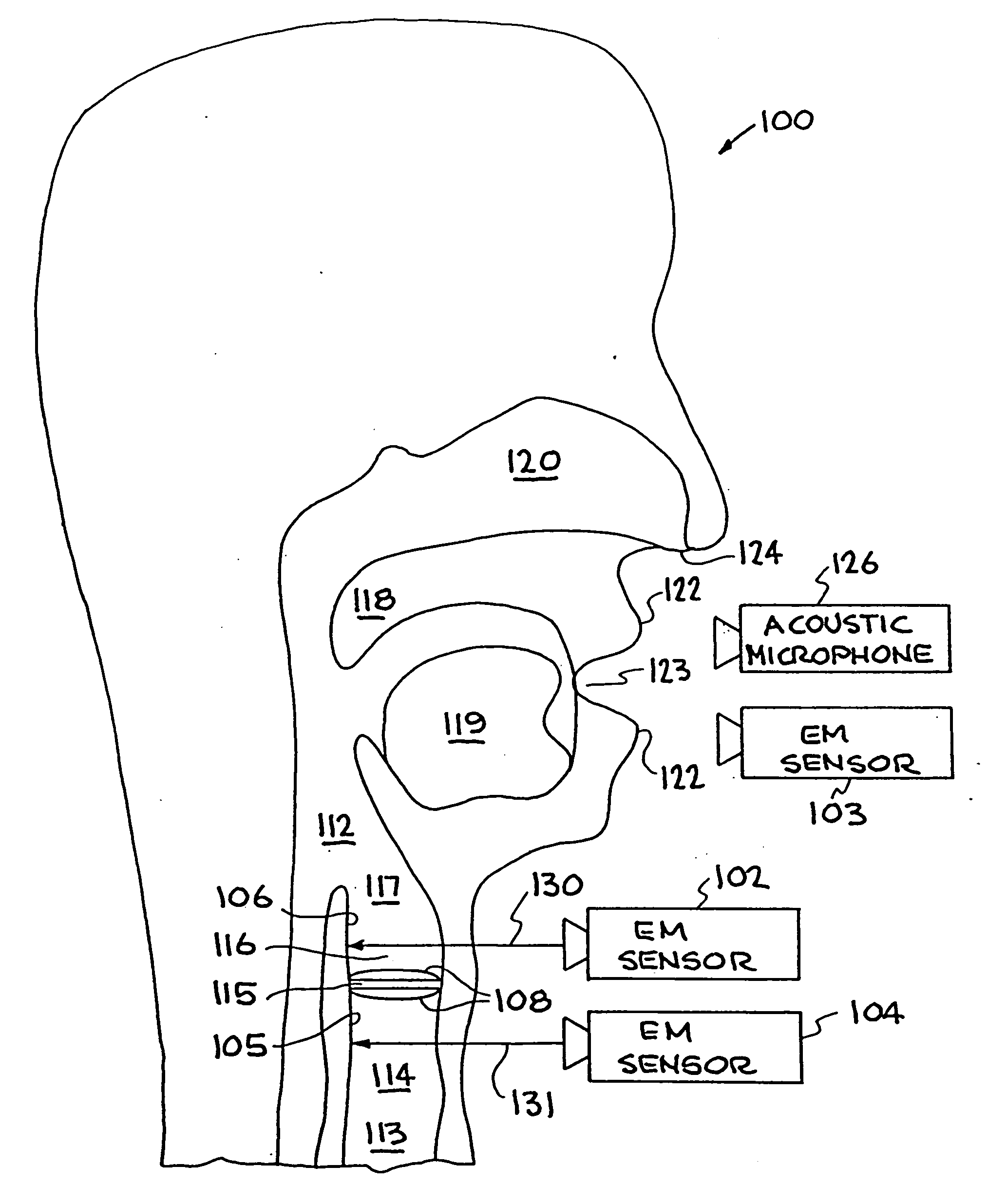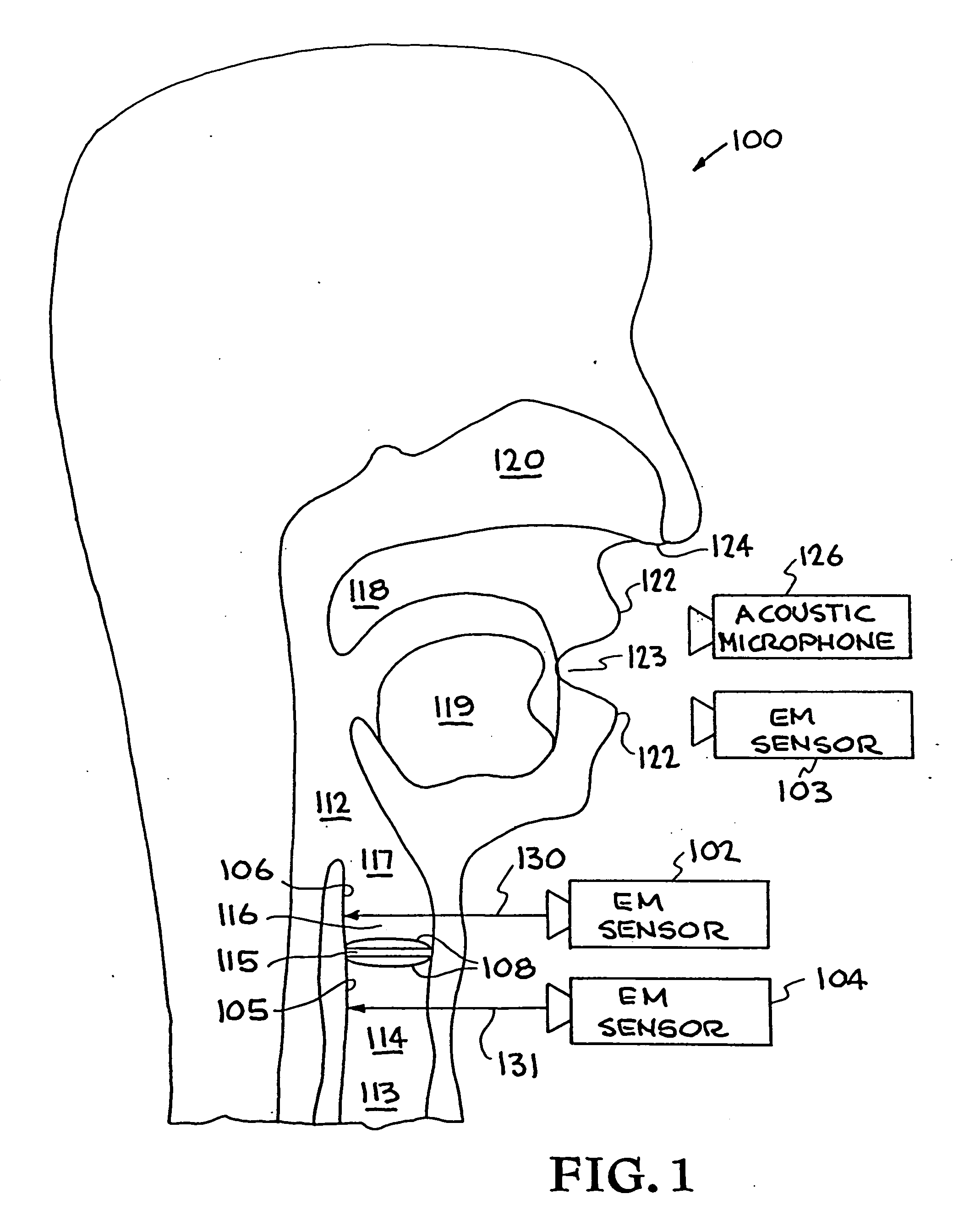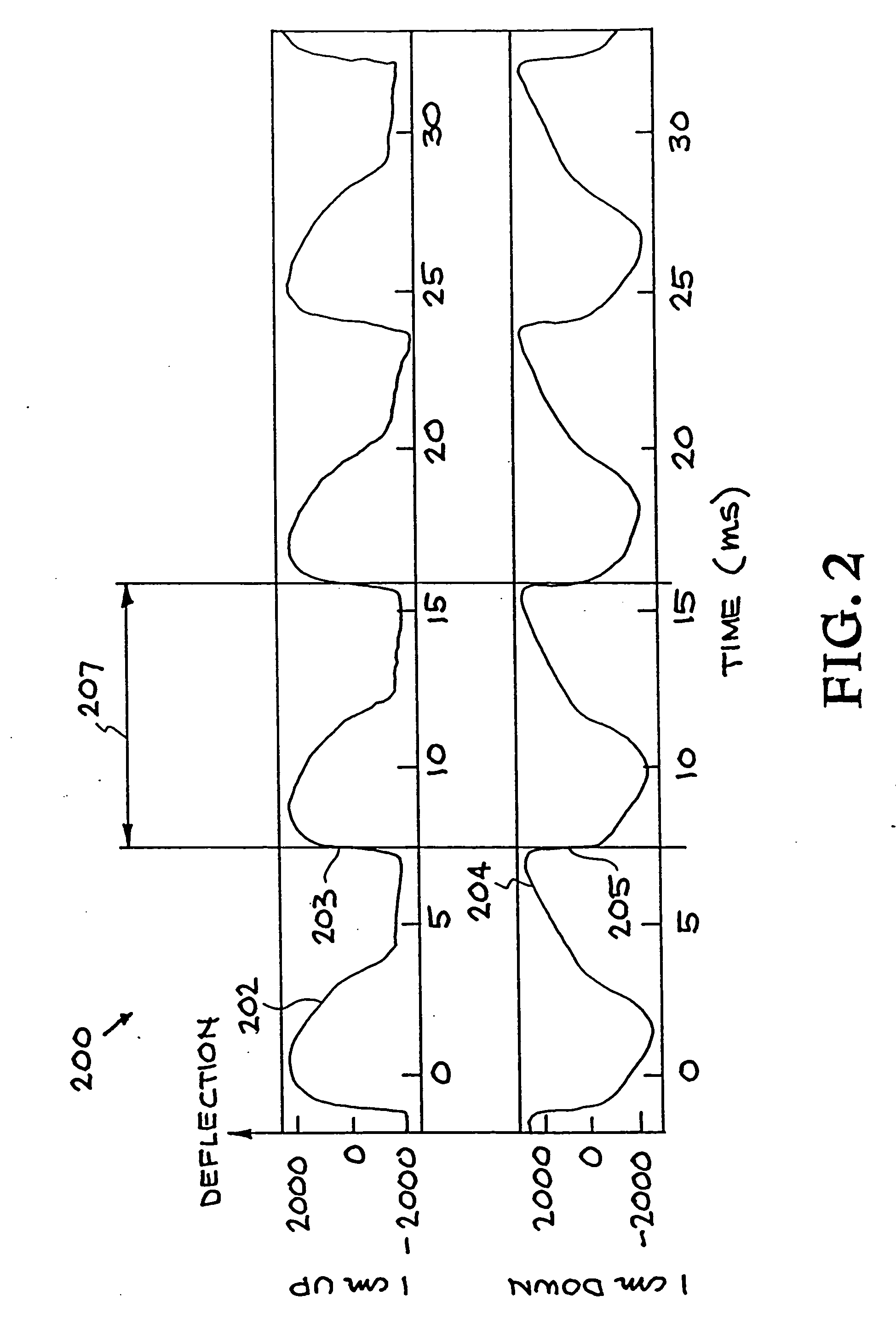System and method for characterizing voiced excitations of speech and acoustic signals, removing acoustic noise from speech, and synthesizing speech
a voice excitation and voice technology, applied in the field of automatic description of human speech, can solve the problems of slow performance of acoustic speech recognition systems, inability to recognize words and sentences with high probability, and inability to accurately characterize speech excitations
- Summary
- Abstract
- Description
- Claims
- Application Information
AI Technical Summary
Benefits of technology
Problems solved by technology
Method used
Image
Examples
Embodiment Construction
[0003] A priority date for this present U.S. Patent Application has been established by prior U.S. Provisional Patent Application Serial No. 60 / 120,799, entitled "System and Method for Characterization of Excitations, for Noise Removal, and for Synthesizing Human Speech Signals," filed on Feb. 19, 1999 by inventors Greg C. Burnett et al.
[0004] This application relates to and incorporates herein by reference U.S. patent application Ser. No. 09 / 205,159 "System and Method for Characterizing, Synthesizing, and / or Canceling Out Acoustic Signals From Inanimate Sound Sources" filed on Dec. 2, 1998, by Burnett et al., and U.S. Pat. No. 5,729,694 entitled "Speech Coding, Reconstruction and Recognition Using Acoustics and Electromagnetic Waves," issued on Mar. 17, 1998 by Holzrichter et al. These related applications are commonly assigned to The Regents of the University of California, located in Oakland, Calif.
[0006] 1. Field of the Invention
[0007] The present invention relates generally to ...
PUM
 Login to View More
Login to View More Abstract
Description
Claims
Application Information
 Login to View More
Login to View More - R&D
- Intellectual Property
- Life Sciences
- Materials
- Tech Scout
- Unparalleled Data Quality
- Higher Quality Content
- 60% Fewer Hallucinations
Browse by: Latest US Patents, China's latest patents, Technical Efficacy Thesaurus, Application Domain, Technology Topic, Popular Technical Reports.
© 2025 PatSnap. All rights reserved.Legal|Privacy policy|Modern Slavery Act Transparency Statement|Sitemap|About US| Contact US: help@patsnap.com



